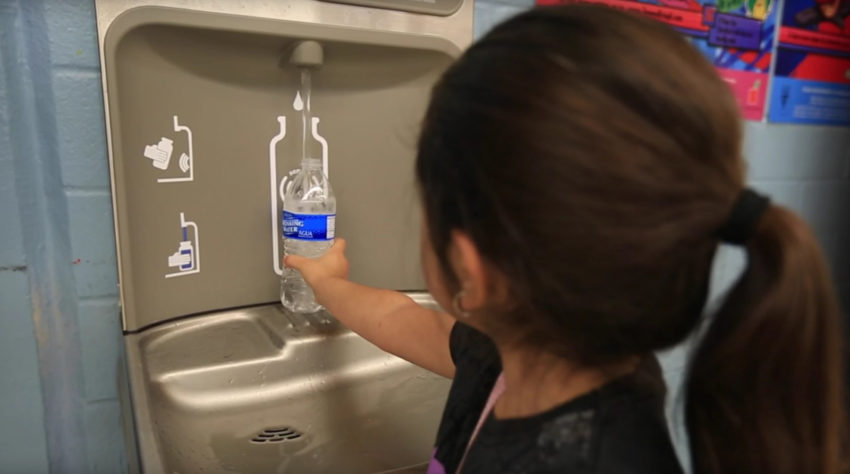
Share On Social!
Many American kids eat two out of three meals at school.
Schools must offer healthy food and drinks, especially for Latino students who are more likely than their peers to face an unhealthy weight, unhealthy neighborhood food options, and unhealthy early development.
That’s why schools should offer plain water with meals—not milk.

So says a new study by University of Illinois researcher Ruopeng An, which encouraged children to drink plain water with their school lunches.
This simple switch from milk to water at school could prevent more than a half-million kids from becoming overweight or obese, and trim the costs of obesity by more than $13 billion, An’s study suggests.
“The nutrition profile doesn’t change much when people increase their plain-water intake, but we do see a significant drop in their saturated fat and sugar intake,” An said in a news release.
This study analyzed the costs and benefits of placing water dispensers in cafeterias in all schools nationwide. The goal is to promote lunchtime plain water consumption.
Plain water has many benefits, including being friendly to the environment, reduced calorie intake, and better body-weight management.
Key results of An’s study:
- Student water consumption tripled and whole milk consumption was significantly less when water dispensers were placed in school cafeterias.
- Expanding this program to all elementary, middle and high schools nationwide would cost $18 for each student’s K-12 experience. This cost includes the price of buying and maintaining the water dispensers.
- Nationwide adoption of the intervention could prevent more than half a million youths in the U.S. from becoming overweight or obese and permanent reductions in the amount of overweight or obese adults.
- Obese adults have annual medical costs $1,500 higher than their healthy-weight peers.
- The intervention could cut medical costs and indirect societal costs associated with unhealthy weights by more than $13 billion.
“While there might potentially be some problems if children consume less whole milk,” An said, “I would say those are probably minor in comparison with the costs associated with the skyrocketing rates of childhood overweight and obesity in the U.S.”
An said the intervention is money-saving compared to other public health strategies.
“The plain-water intervention’s projected long-term savings compared favorably with… imposing excise taxes on sugar-sweetened beverages and enforcing nutrition standards for foods and drinks sold in schools outside of meals,” An said.
Find more information on Latino food policies in Salud America!’s research on Food and Latino kids and sugary drinks.
Bring water bottle fountains to your school with Salud America!’s Water Bottle Action Pack!
By The Numbers
142
Percent
Expected rise in Latino cancer cases in coming years



